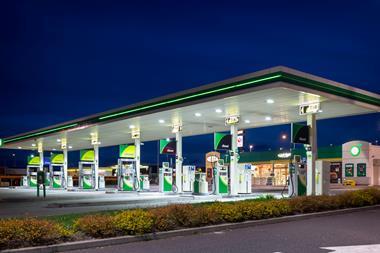It’s best to think small when it comes to laundry, meaning concentrates are big business for forecourts. Not only does it tap into the convenience top-up trend but it gives retailers the chance to maximise the use of shelf space.
Simon Fisher, laundry category manager at Unilever UK, says: "We are seeing consumers migrate to concentrated liquids for the environmental benefits and the convenience. The success of Small & Mighty shows the format is here to stay. Retailers should make sure they maximise their laundry offerings by stocking key brands that are also space savers." Fisher adds that main wash concentrates are currently in growth by 59% (latest IRI to Oct 31, 2009), which shows significant demand for the format.
Unilever says there are several reasons for the success of concentrates. One is that the recommended normal amount of Small & Mighty delivers the same cleaning power as double the amount of standard liquid detergents. The company says this has attracted new users looking for an effective clean from a more portable format. In addition, the trend for convenience shopping means shoppers are more likely to opt for a more compact format on impulse, that is lighter and easier to carry home.
Over at Procter & Gamble (P&G), Fairy Liquid has also gone smaller. Fairy was relaunched last year with a ’best ever’ formula and new pack size the previous 500ml bottle was replaced with a more sustainable, lighter 450ml pack. In addition, the new bottles are made from recycled plastic and require less plastic to be made. The newer richer Fairy Liquid is also said to last up to 50% longer with twice the de-greasing power than the next best-selling brand.
Paul Lettice, trade communications manager at P&G, says: "The smaller pack gives retailers more space on shelf and is also a positive step towards helping retailers answer consumer demand for environmental responsibility by using recycled materials for the bottles."
According to the recent CTP 2009 report from Harris International Marketing (him), penetration of household items in forecourts remains low with only 1% of customers currently buying them. A Him spokeswoman advises: "In order to sell the household category well, forecourts need to start with getting the top-up mission right, and in order to get that right they need to master fresh." Apparently it all starts and ends with fresh. "Get the top-up mission right and women will follow and then the household category will benefit," says the spokeswoman.
According to Mintel, the household care market is valued at nearly £4.4bn, so it’s well worth trying to clean up in this category. Especially as Mintel adds that the UK market for household cleaning products has seen steady growth (17%) since 2003. And experts say the household cleaning market tends to provide stability and is relatively static even during a recession as all consumers still need to clean.
According to Mintel, other trends include strong growth in air care much of which is due to the crossover into ’ambience creation’.
And it seems Brits are dedicated to their dishwashers, as Mintel states: "People have shown that they are prepared to spend more on products that avoid getting their hands dirty, with dishwasher products now worth more than hand dishwashing detergents."
And finally, it’s still female shoppers who are most likely to do the shopping in this category.
According to Mintel, almost half of women go out to work but 47% them are resigned to the fact that keeping their home clean and tidy is their responsibility. In contrast, less than a fifth of men (18%) are of the same view.



























No comments yet